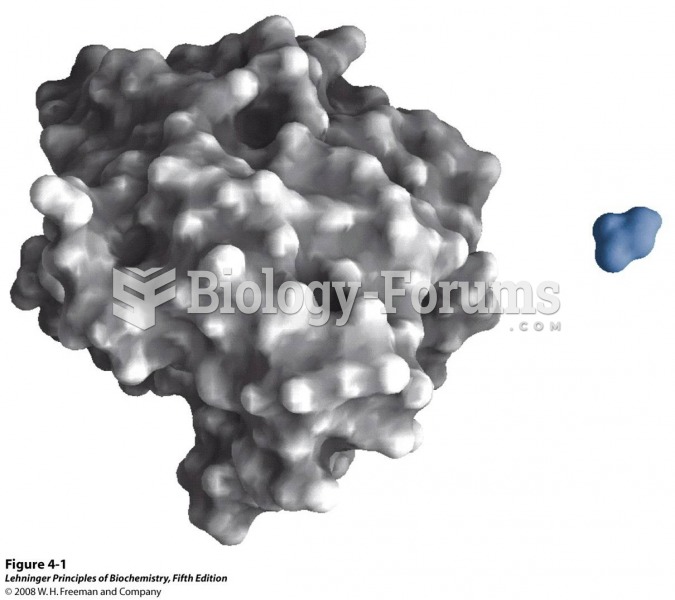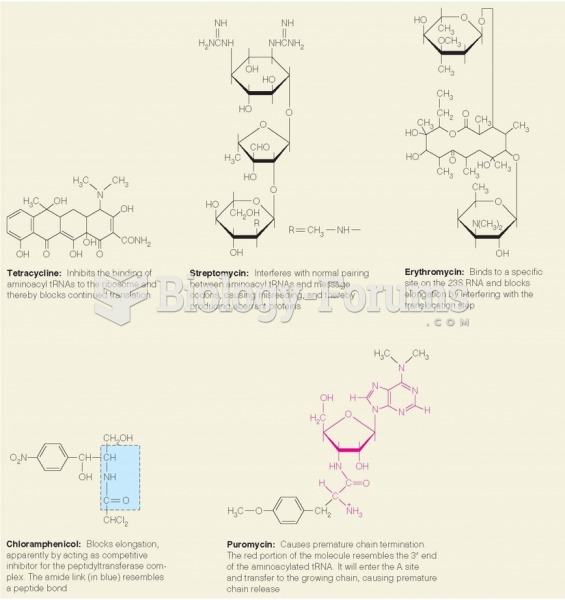|
|
|
Throughout history, plants containing cardiac steroids have been used as heart drugs and as poisons (e.g., in arrows used in combat), emetics, and diuretics.
Egg cells are about the size of a grain of sand. They are formed inside of a female's ovaries before she is even born.
Earwax has antimicrobial properties that reduce the viability of bacteria and fungus in the human ear.
Pink eye is a term that refers to conjunctivitis, which is inflammation of the thin, clear membrane (conjunctiva) over the white part of the eye (sclera). It may be triggered by a virus, bacteria, or foreign body in the eye. Antibiotic eye drops alleviate bacterial conjunctivitis, and antihistamine allergy pills or eye drops help control allergic conjunctivitis symptoms.
The human body produces and destroys 15 million blood cells every second.







